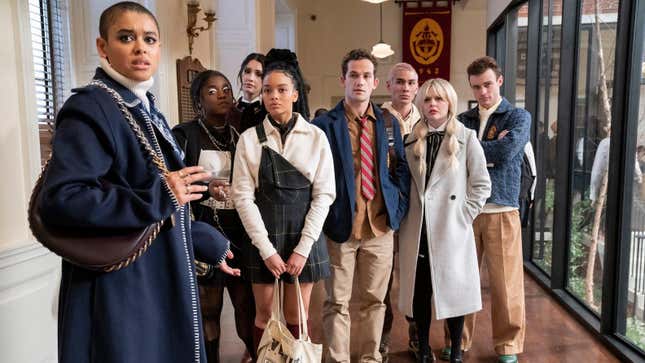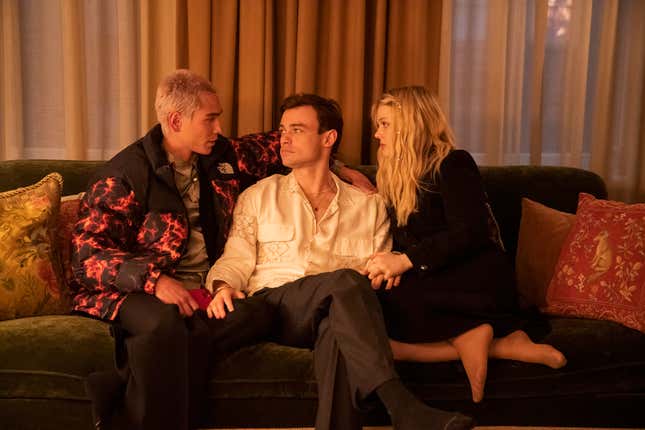‘Gossip Girl’ Reboot Is Canceled, Understandably, Because It Sucked
OG Gossip Girl fans wanted "obnoxious escapism." They got exorbitantly rich teens going to Black Lives Matter protests, wielding cringe DEI language.
EntertainmentTV

I bring you some… news—good or bad, it’s up to you: HBO Max’s Gossip Girl reboot has been canceled after two seasons, the streamer announced on Thursday. That doesn’t necessarily mean the show is over-over; its executive producers are reportedly seeking out a new home for the reboot. Yet, for all the heartbreaking cuts that streamers like Netflix and HBO have made in recent months, I’m not sure that the second coming of Gossip Girl really needs to be saved.
This Gossip Girl, which premiered in 2021, emerged as one of a few highly anticipated reboots alongside Sex and the City’s And Just Like That…, premiering at roughly the same time. There’s certainly a major appetite for Y2K and ‘90s nostalgia right now, yet, nonetheless 2021’s Gossip Girl failed to pick up any traction, or tap into the massive fanbase of the original. I have some guesses as to why.
When the show—which follows a new generation of ultra-rich, noticeably more diverse teens at the same elite prep schools of the original—was first announced, I remember wondering if it was even culturally possible for a show like Gossip Girl, which aired from 2007 to 2012, to air today. The original was a show about rich, straight, white people being callous and cruel, a show about obscene and uninterrogated privilege, not to mention myriad student-teacher, minor-adult sexual relationships. The creators immediately plugged into critiques like this and fired back. Ahead of the reboot’s release, showrunner Josh Safran told Variety, “These kids wrestle with their privilege in a way the original didn’t. In light of [Black Lives Matter], in light of Occupy Wall Street, things have shifted.”
-

-

-

-

-

-

-

-

-

-

-

-

-

-

-

-

-

-

-

-

-

-

-

-

-

-

-

-

-

-

-

-

-

-

-

-

-

-

-

-









































